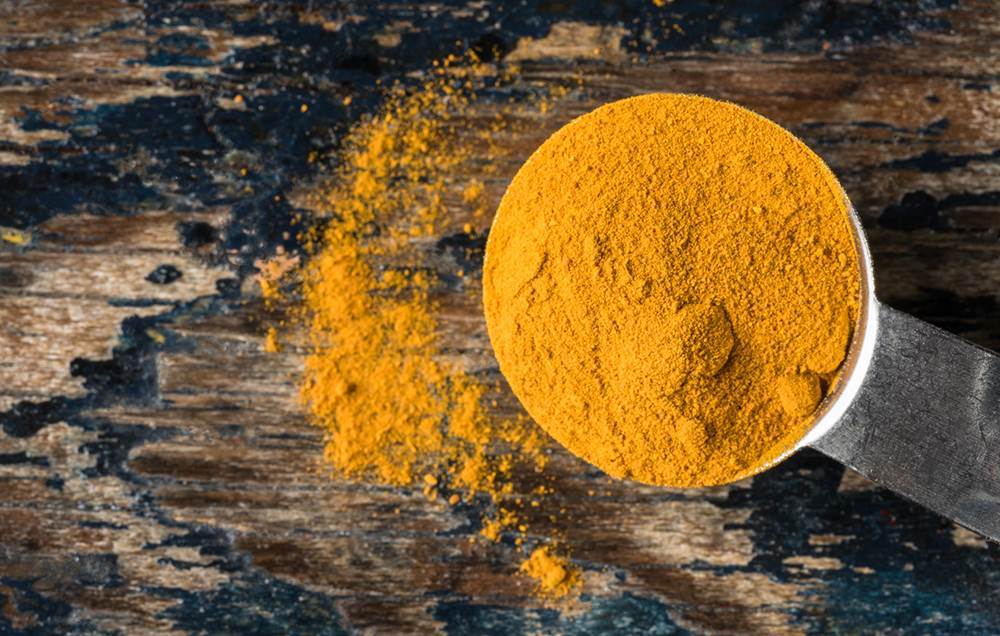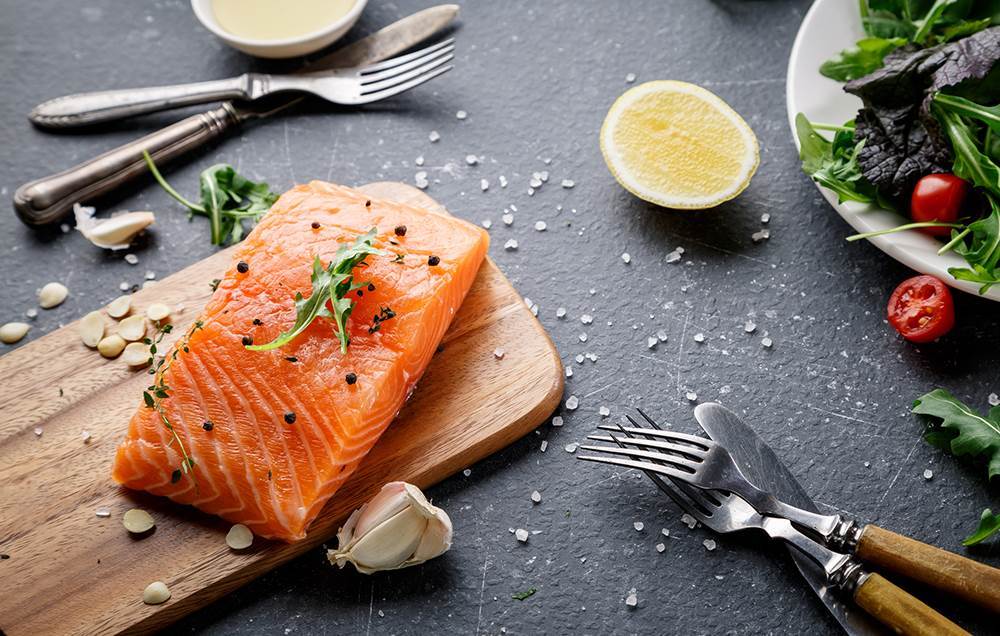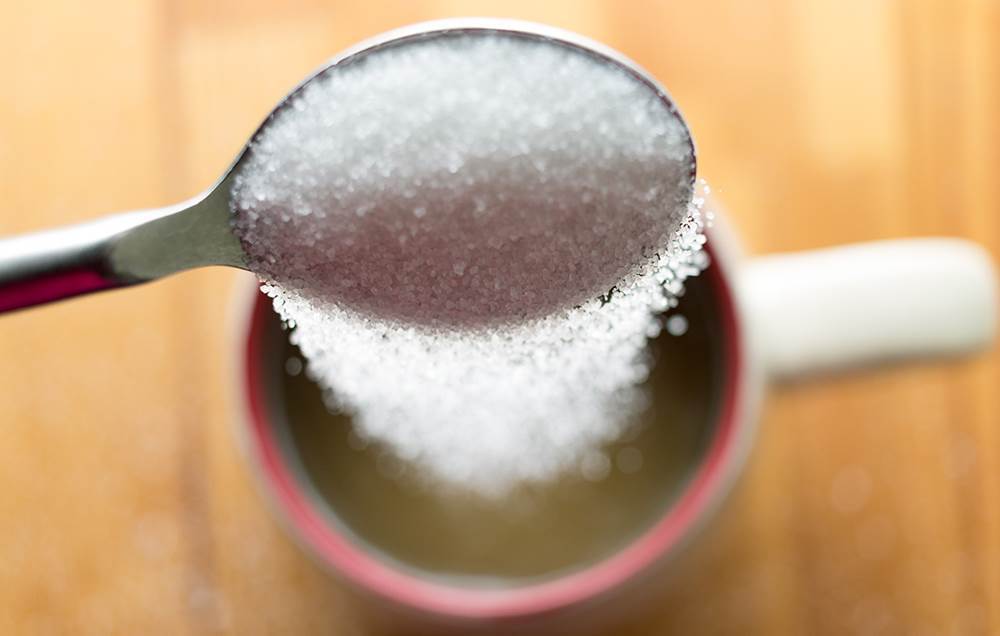Keeping inflammation levels in check throughout your life can help delay age-related diseases and decline. Here's what you can do.
There are plenty of noninvasive, all-natural strategies that can reduce chronic inflammation and delay the pace of ageing, from dietary choices to lifestyle considerations. Along with getting enough sleep, exercising regularly and avoiding smoking, here are some other strategies you can add to your health and wellness routine.
(Discover more tips for a happier, healthier life in our Off-the-couch Weight Loss Guide!)








Try going without.
Before we get into specific dietary advice about what you should eat (and not eat), let’s first examine some of the substantial evidence that indicates eating less can decrease inflammation and slow aging. In lab studies, kilojoule restriction without malnutrition has been shown to delay the onset of age-related illnesses and increase life span. Similar research has shown that intermittent fasting may prevent or delay the progression of heart attack, stroke, diabetes, cancer, Parkinson’s disease and Alzheimer’s disease—all inflammation-mediated illnesses. It also slowed bone mineral density loss and improved cognitive ability.
Long-term studies on fasting in real-world scenarios aren’t nearly as plentiful for obvious reasons, but a just-released study found that cutting kilojoules by 25% for two years significantly lowered chronic inflammation over time. The study was conducted with 220 nonobese volunteers; one group maintained their normal diets, while the second group restricted calories and took multivitamin and mineral supplements to prevent malnutrition. Inflammation levels were assessed at the outset of the study, at 12 months, and at 24 months. Interestingly, while weight, fat mass and leptin (the “satiety hormone”) levels were all down at 12 months for the kilojoule-restriction group, inflammatory biomarkers CRP and TNF-a didn’t decrease until 24 months, which may suggest that long-term kilojoule restriction triggers the body to lower inflammation through other ways beyond initial weight loss.
Other studies on people willing to live below their normal kilojoule ranges reveal that intermittent fasting may reduce markers of oxidative stress and inflammation, reduce weight and body fat, lower blood pressure and improve memory. Studies have observed a decrease in glucose, insulin, and a hormone called insulin-like growth factor 1 (IGF-1). (IGF-1 along with insulin is associated with accelerated ageing and cancer.) One of the most dramatic benefits associated with fasting, however, affects people living with the inflammatory condition rheumatoid arthritis. Many studies indicate that during periods of fasting, rheumatoid arthritis patients experience less inflammation and pain. Their symptoms return, though, once the fast is over—unless the fasting period is followed by a vegetarian diet. Which leads us to the next strategy...
Fight ageing with phytochemicals.
Diets rich in fruits, vegetables, teas, herbs and spices can help decrease inflammation and promote health at a cellular level through a variety of biologically active compounds called phytochemicals that are only found in plants. Anthocyanins—the antioxidant flavonoids that give red, purple or blue fruits their colour—protect brain cells from free radical damage and reduce the secretion of proinflammatory cytokines.
Studies indicate that consuming flavonoid-rich fruits (think blueberries, blackberries, raspberries and strawberries) may delay the onset of age-related dementia and improve memory. Data from a long-term study suggests that blueberries and strawberries may delay cognitive ageing by as much as 2.5 years—and the greater the intake, the slower the cognitive decline.
Another study based on nearly 2,000 women found that higher anthocyanin and flavone (a pigment found in white and yellow plants) intake was associated with significantly lower insulin resistance and markers of chronic inflammation, along with higher levels of adiponectin, a protein that helps regulate glucose levels. The anthocyanins and flavones cited in this study came from berries, grapes, oranges, pears, peppers and wine.
Flavonols, another type of flavonoid found in a wide variety of fruits and vegetables, may protect the nervous system and provide antioxidant, anti-inflammatory and neuroprotective benefits, as well. To get more flavonols, concentrate on adding more yellow onions, spring onions, kale, broccoli, apples, berries, tea and guava to your diet.
The polyphenols known as resveratrol, curcumin, vanillic acid, and isorhamnetin all have the power to reduce the release of proinflammatory cytokines. Researchers have highlighted onions, turmeric, red grapes, green tea and acai berries as sources of these anti-inflammatory polyphenols. They also found that combinations of these polyphenols were even more effective, supporting the oft-repeated advice to enjoy a varied diet.
Other sources of these polyphenols include almonds, chives, fennel and dark leafy greens. Green tea polyphenols get bonus points for slowing ageing: They protect against UV-accelerated skin ageing and confer antiwrinkle, anti-inflammation and antioxidant effects.
Spice it up.
Curcumin, the active compound found in the aromatic spice turmeric, is common in South Asian cuisine, but given its health benefits, it would be wise to feature this spice in many types of dishes. Part of the ginger family, this bright yellow seasoning boasts powerful anti-inflammatory effects. A recently published analysis of nine randomised controlled trials on the effect of curcumin supplements demonstrated a significant reduction in IL-6 levels. And the IL-6-lowering effect was found to be greatest in the patients who needed it most—the ones with the highest levels of inflammation.
To supercharge the effect of curcumin, whether you’re getting it through turmeric or a supplement, combine it with black pepper. Black pepper has anti-inflammatory and antioxidant properties all on its own, and combining it with turmeric increases the amount of curcumin the body can absorb and use by as much as 2,000%. As turmeric is fat-soluble (meaning it dissolves in fat), another way to increase absorption is to combine it with a healthy fat like olive oil or coconut oil. Essentially, this allows curcumin to avoid being broken down by stomach acids or the liver and to make it into the bloodstream, where it can be absorbed.
Other herbs and spices with demonstrated anti-inflammatory effects include capers, garlic, ginseng, ginger, parsley, rosemary and sage.
Enjoy olive oil—daily.
Another all-natural anti-inflammatory powerhouse that may help slow the ageing process is olive oil, one of the main staples in the heart-healthy, anti-inflammatory Mediterranean diet. Mediterranean populations have the lowest rates of chronic inflammatory disease in the world, while their life expectancy is among the highest.
Virgin and extra-virgin olive oil contain higher polyphenols than refined olive oil, including a phenolic compound called oleocanthal, with anti-inflammatory properties comparable to ibuprofen. Oleocanthal decreases inflammatory biomarkers in arthritis, helps protect the nervous system and provides anticancer effects.
Another study conducted with overweight and obese people found that replacing their regular cooking oils with extra-virgin olive oil for 3 months resulted in lower systolic blood pressure, higher beneficial HDL cholesterol levels, and improved immune function. The researchers specifically measured how well a type of cell in the immune system known as T-cells reproduced. A decline in T-cell function is associated with obesity and may be the central defect in immunosenescence, a gradual age-related weakening of the immune system.
Boost your omega-3s.
You’ve read the health headlines. Many studies indicate that there’s a strong benefit to getting a type of fatty acid known as omega-3 into your diet. A high intake is related to lower levels of CRP and IL-6, and thus lower inflammation. Other studies have found a low intake of omega-3s is associated with poorer cognitive function and higher CRP levels.
You can boost your omega-3s and lower inflammation by adding cold-water fish such as salmon, mackerel, herring and sardines to your diet. Vegetarian sources of omega-3s can be found in flaxseeds and walnuts and their oils and in extra-virgin olive oil.
Cut back on sugar and animal protein.
Eating less sugar and animal protein is a great idea all around, as both spark inflammation and increase the risk of many other negative health conditions, including heart disease, type 2 diabetes and other metabolic disorders and high BMI. But a high consumption of sugar (especially refined sugar) and animal protein has also been found to stimulate cell-signaling pathways that can accelerate the ageing process. Sugar, animal protein and saturated fat have all been linked with DNA damage, specifically the telomere shortening discussed earlier.
In a study of more than 5,300 people ages 25 to 60, all with no prior history of heart disease or diabetes, researchers found that drinking sugar-sweetened soda was associated with shorter telomeres. Given that the normal ageing process results in telomere shortening of about 13.6 base pairs per year, researchers estimated that drinking a 600mL soft drink on a daily basis was equivalent to 4.6 additional years of ageing per year of soda consumption. They concluded that drinking soda regularly could influence metabolic disorders associated with cellular ageing. Consuming high amounts of sugar has also been shown to accelerate sagging skin by damaging the delicate collagen fibres that help support your skin and render it more elastic.
Where animal protein is concerned, processed meats (and to a lesser degree, red meat) are carcinogenic and promote systemic inflammation. However, animal protein is also known to boost levels of the proinflammatory molecule homocysteine, which plays a major role in the development of cardiovascular disease. Guess what else homocysteine has been linked with? Dementia. A recently released study found that centenarians with dementia had significantly higher homocysteine levels than those with normal cognition. A look at other inflammatory biomarkers revealed that those with dementia also had higher levels of CRP, IL-6, and ESR, unequivocally linking dementia with chronic inflammation.
Cultivate your social network.
A large body of research has established that social relationships and connections are vital to both physical and mental wellness. Now a recent study that followed a group of people over a period of 24 years has revealed some important insights on the effect of social relationships on inflammation.
Based on a study pool of 647 adults, researchers found that support from family, friends and one’s spouse provided some protection against inflammation but that social strain from family and friend relationships substantially increased the risks of inflammation. In other words, social strain exerted a more powerful negative effect on inflammation than the positive effect of good social relationships.
All of this is fascinating in and of itself, but a look at the details of the study is even more revealing. Check out these highlights:
- The overall inflammation burden was 27% lower for those with strong spousal support.
- Even after adjusting for age and sex, strain experienced in family relationships was associated with “vastly elevated odds” of inflammation.
- Strain experienced between friends was associated with a 97% higher risk of one inflammatory biomarker and a 50% higher inflammation burden overall.
Reduce stress.
It’s well established that chronic stress is an independent risk factor for chronic inflammation, heart disease and mood disorders such as anxiety and depression. We also know that chronic stress contributes to sleep problems and that chronic inflammation is associated with not getting enough rest. Now studies have shown that stressful life events (such as divorce, employment problems, illness and bereavement) also contribute to the aging process, specifically because stress is associated with telomere shortening.
Fortunately, some stress-reducing techniques may help you slow down the ageing process. A recently published study sought out stressed-out people to study the effect of stress-reducing techniques and IL-6 levels. They found them in the form of 35 unemployed adults who were job-hunting. Volunteers were taught either a mindfulness meditation technique or a relaxation technique and were assessed at the outset of the study and again 4 months later. The relaxation training made no difference, but those who decreased their stress through mindfulness meditation exhibited lower IL-6 levels by the end of the study period.
Mindfulness meditation techniques are simple to learn and appear to be very effective in reducing stress and enhancing sleep. A new comprehensive review of randomised controlled trials based on over 1,600 participants has found that mindfulness meditation lowered CRP levels, increased telomerase activity (which can protect against premature ageing), and improved immunity. Researchers theorise that exposing a dysfunctional or hypersensitive immune system to mindfulness meditation could improve health by enhancing immune defenses that protect against infection as well as various age-related conditions, including heart disease, osteoporosis, arthritis, type 2 diabetes, frailty and some cancers.








